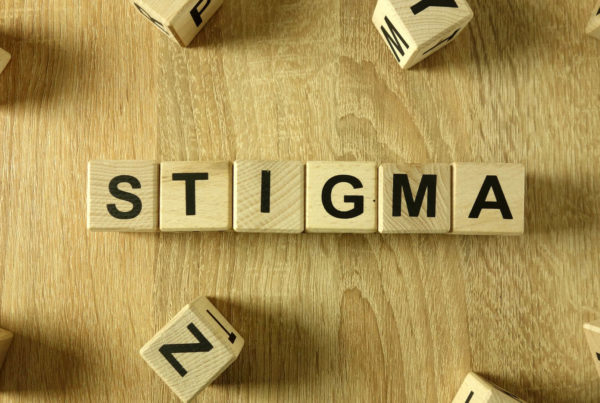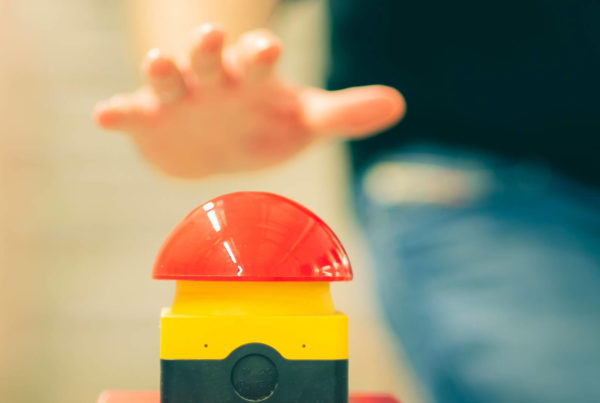Fitting In
Julie: When my child with autism was in elementary school, we did everything we could to try to fit in. We were heavily involved in activities with typical kids, and tried anything that seemed do-able. The goal was to be as normal as possible and have typical friends.
I remember one event that we spent walking the periphery of the room, circling again and again, while everyone else sat and listened to a somewhat uninteresting lecture on the history of Scout uniforms. I felt so alone, with too many eyes on me, but trying to get through the event to earn the badge. A few moms made kind and sympathetic remarks afterwards, but clearly they wouldn’t want to be me. I knew that they would never invite my child over for a playdate.
We had sleepovers at the zoo, in tents, and on the Battleship New Jersey. I had extreme anxiety about every new experience, as I never knew what expectations might be tricky for us, and I wanted to stay under the radar. I can’t imagine I was much fun to be around, but I tried to help out and be part of the mom group when I could. It was hard for people to relate to my difficulties getting my child’s hair brushed, or working with the OT on handwriting.
Jason: I was never really anxious about the field trips. For me it was fun going to new places. I’m obviously not every kid with autism, though, and some kids might not like field trips.
I remember the times I was resistant to typing my assignments when everyone else was writing them by hand. I didn’t like being different from the other kids. It’s not like I didn’t know that other people couldn’t read my handwriting, but I had to accept being different, and that was hard for me. I think it did kinda help when I saw there were other kids that were somewhat like me.
Julie: We spent many years going to therapy, and I connected with many parents of kids with autism while we sat in waiting rooms. As they grew older, a few of the kids I knew with autism were in typical activities, but many couldn’t pass auditions to get into competitive activities anymore. As the birthday party invitations trickled to a complete stop, parents I’d met along the way joined together to create social groups and activities to fill the void. We created special needs karate, yoga, social skills groups and theatre.
I lost touch with most of the families who only had typical kids, as we lived in different worlds. I saw their kids’ achievements and milestones mostly at a distance, on Facebook.
Jason: Sometimes, it takes me a little longer than other people to respond when someone talks to me. Usually, I’m thinking through how to respond appropriately. When I don’t respond right away, people thing I don’t understand, and switch to using a higher pitched voice and ask really simple questions. This really pisses me off.
—————————————————
COVID-19
Julie: For some of the families with kids with autism, I imagine that being home during the pandemic is a break from the constant pressure of trying to fit in. No meltdowns in the grocery store checkout line. No anxiety of watching your child onstage at the end of the year concert, listening to old ladies comment on how much your child is moving around.
No one is looking at families with kids with autism now. The families are handling their struggles alone at home, invisible to the world. Now there will be a whole new set of skills to teach. Teaching a young child with autism to wear a mask seems out of reach. Expecting a non-verbal child to learn over Zoom? Unrealistic.
Jason: For me personally, I think the quarantine itself isn’t that hard. What’s hard for my mental health is knowing about all the bad things happening in the world. Taking walks helps, that’s why I try to do it. I do need to have some human interaction, so it helps to do things online, like Dungeons and Dragons, and Cards against Humanity.
Julie: As people with autism start to venture back out into the world, at least the social rules are simpler than in the past. Wear a mask, stay six feet away, don’t touch anyone. In the past, there was an overwhelming array of choices just for greetings. Handshake, high-five, side hug, upper body hug, kiss on cheek? Now we just wave hi to everyone, from a distance. With kids with autism, you try to teach them greetings, as well as all the nuances of social interaction. How far do you stand from a person in each interaction? How to interrupt politely? How to be assertive with friends on the playground, but extra polite to the principal?
Jason: How to observe people around you to figure out what the rules are, is a learned skill for us. I think typical kids do that automatically.
Julie: At the beginning of the pandemic, I arrived at Giant to find that all the rules had changed. I was wearing a mask which fogged up my glasses, now I had to deal with trying to see yellow arrows marking the one way aisles. Someone scolded me for going the wrong way: “Can’t you see the arrows?” I snapped back, “No I can’t see, my glasses are fogged up.” I finally had take a break outside, asking permission from the greeter who was managing the line.
Now the playing field is leveled, as everyone is struggling with new rules.
——————————–
Julie: People do ask, what will Jason do after graduation? Even before the pandemic, I told them that I wasn’t worried about Jason finding a job, we could take it slow just learning to live.
Jason: It’s kind of sad with the virus, I wanted to take a break from the academic stuff and finally get to France.
My goal right now isn’t to be normal, it’s to be happy.






